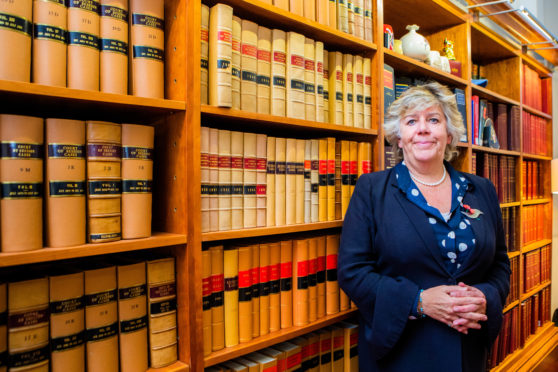An Aberdeen solicitor has warned the justice system could “collapse” unless jury trials resume, as a new working group is set up to look at the practicalities.
Jury trials across the country have been shelved due to the coronavirus pandemic and the resultant social distancing measures required.
But a new working group has now been established by the Lord Justice General, Lord Carloway, to consider the practicalities of recommencing trials by jury as and when public health guidelines permit such a move.
The group, being led by the Lord Justice Clerk, Lady Dorrian, will examine how the use of technology, or smaller jury sizes could be utilised to meet social distancing requirements.
Reacting to the news, solicitor Paul Barnett, of George Mathers & Co, said: “They need to get jury trials running again or the whole justice system is going to collapse.
“We’d have to either reduce the jury size or do it remotely.
“We’d have to exclude members of the public but you could then have members of the jury socially distanced, dotted about the court in the public gallery.”
Iain McGregor, of Burn and McGregor, suggested a solution to the issue of juries deliberating in a small jury room.
He said: “One way around that would be to leave them in court and everybody else disperses.”
Mr Barnett added: “There are certainly difficulties but it’s not insurmountable. The jury system is going to have to start again soon.”
He said reducing the number of jurors from 15 down to seven was one idea being mooted, and added: “It’s not ideal but it’s preferable to not having a jury at all.”
Mr Barnett said there was now a huge backlog of trials due to run since they were put on hold, and some accused are on remand for long periods before having their day in court.
He said: “It’s a huge problem. It’s a problem for the accused, for the solicitors, and it’s a massive problem for the system.”
Keep up to date with the latest news with The Evening Express newsletter
Lady Dorrian said courts had been working “extremely hard” to deliver justice in the current challenging circumstances.
She said: “The particular challenges of conducting a jury trial, while also following public health guidelines to protect those engaged in the hearing, is a difficult balance to meet.
“This group is working as quickly as is possible to ensure that all the impacts and practicalities are fully considered in order to provide the best outcome for Scotland, both in terms of justice for all concerned, but also in terms of public safety.”
Graham Morrison, of Gavin Bain and Company, said: “They were talking about either taking the juries down to seven, or extending the whole jury box so there’s two metres between people.
“But if they do that then they’ll be behind the dock so they won’t be able to see the accused, so they’d have to move that back as well.”
Mike Monro, of Mackie & Dewar, said: “Before you can do them you have to make sure you’ve got the proper facilities.
“Jury trials are an absolutely essential part of our legal system.
“People can now be remanded for 320 days.
“The accused person has already served, if remanded, the equivalent of in effect two years imprisonment awaiting trial.
“How can we possibly, in this day and age, say that is appropriate?
“You must to something to get jury trials back up and running as soon as possible.”
